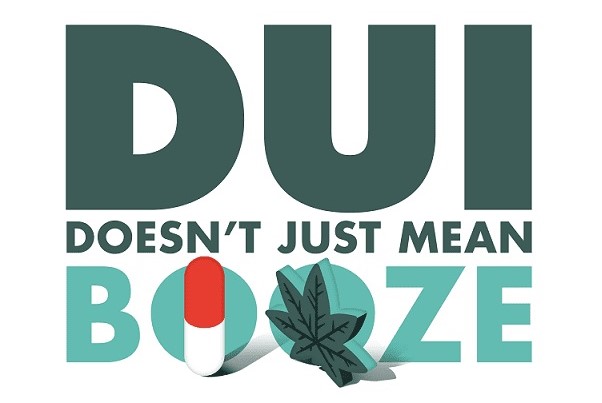Introduction to DUI in California
In California, driving under the influence (DUI) is a serious offense with far-reaching consequences. The law considers drivers with a blood alcohol concentration (BAC) of 0.08% or higher to be driving under the influence. For commercial drivers, the threshold is even lower at 0.04%. Young drivers under 21 years old must adhere to a “zero tolerance” policy, facing DUI charges for any detectable BAC.
Understanding DUI insurance is critical for all drivers in California. DUI insurance refers to the auto insurance coverage that meets state requirements for drivers who have been convicted of a DUI. It’s often more expensive than standard policies due to the increased risk associated with DUI offenders.
Impact of a DUI on Insurance Rates
A DUI conviction in California can lead to a significant increase in auto insurance premiums. Insurers view DUI offenders as high-risk drivers, which often results in higher insurance costs to offset this risk. According to recent data, drivers in California could see their insurance rates increase by an average of 30% to 200% after a DUI conviction. This rate hike can last for several years, significantly affecting the overall cost of owning and operating a vehicle.
For example, a driver paying $1,500 annually for auto insurance might see their premium rise to anywhere between $1,950 and $4,500 after a DUI conviction. These increased rates reflect the insurer’s need to cover potential future claims, given the statistical likelihood of DUI offenders being involved in accidents.
Legal Requirements for DUI Offenders
California law imposes specific insurance requirements on drivers convicted of a DUI. One of the most crucial is the need for an SR-22 form, a certificate of financial responsibility issued by your insurance company to the California Department of Motor Vehicles (DMV). This form proves that you carry the minimum required auto insurance coverage post-DUI.
The SR-22 is not a type of insurance but a documentation requirement proving that you have liability coverage. Typically, drivers must maintain an SR-22 for about three years following a DUI conviction. Failing to maintain this form can result in the suspension of your driving privileges.
The process of obtaining and maintaining an SR-22 can be complex and often requires the assistance of a knowledgeable insurance provider. This makes choosing the right insurer an essential step for any DUI offender in California.
The Staggering Consequences of a DUI in California.
When you are charged with a DUI, it’s not just a ticket; it can significantly impact your life. Moving forward, we’ll take you through the arduous process from the moment of arrest to regaining your driving privileges and everything in between.
Arrest and Booking: If an officer suspects that you are driving under the influence, you will be pulled over. They may conduct a sobriety test or ask you to take a breathalyzer. If you fail or refuse these tests, you will be arrested. You’ll then be taken to a police station for booking, where they will take your fingerprints and photograph.
Jail Time: After being booked, you may have to spend time in jail. The duration of your jail time can vary, but even first-time offenders can expect to spend at least a few hours behind bars until bail is posted.
License Suspension: Following the arrest, your driver’s license will be confiscated and, in most cases, you’ll receive a notice of suspension. Typically, you have 10 days to request a hearing to contest the suspension. If you don’t or if the suspension is upheld, you’ll lose your driving privileges for a period ranging from several months to several years depending on prior offenses and the circumstances of your case.
Obtaining a Restricted License: Even with a suspended license, you might need to drive for work, school, or other essential activities. California allows you to obtain a restricted license in some cases, but to do this, you need to file an SR-22 form with the DMV. This form is proof of insurance, and your insurance company can help you with the filing. Note that this will likely cause your insurance premiums to skyrocket.
Court Proceedings: Next, you’ll have to face the court. This generally involves hiring an attorney, attending hearings, and potentially going to trial if you plead not guilty. Penalties if convicted can include hefty fines, probation, mandatory alcohol programs, and even more jail time.
Traffic School and DUI Programs: As part of the sentence, the court will likely require you to attend a DUI program. This can range from a few weeks to 30 months, depending on the severity of the offense. You may also be required to attend traffic school to learn about the risks and responsibilities of driving.

Driving Under the Influence of Marijuana and Other Drugs:
When most people think of DUI, alcohol is usually the first thing that comes to mind. However, it is crucial to understand that DUI laws in California encompass more than just alcohol. Driving under the influence of marijuana or other drugs, including prescription medications, is also considered a DUI and is subject to similar consequences.
Like alcohol, drugs can impair your ability to operate a vehicle safely. With the legalization of marijuana in California, there has been an increase in cases of individuals being charged with DUIs due to driving under the influence of marijuana.
The law does not distinguish between the substances when it comes to DUI; whether the impairment is due to alcohol, marijuana, prescription medication, or any other drug, the penalties can be equally severe. These can include license suspension, fines, jail time, and the required attendance in a DUI program.
Law enforcement officers are trained to detect impairment due to drugs and may conduct field sobriety tests. In some cases, they might call a Drug Recognition Expert to the scene to evaluate the driver’s condition.
It is essential to be aware of how medications, marijuana, and other drugs affect your ability to drive. Even if you believe that you are compliant with medication instructions or that you are using marijuana within legal limits, driving while impaired is illegal and dangerous.

Obtaining Insurance with a DUI on Your Record:
Shopping for DUI Insurance
After a DUI conviction in California, finding the right insurance provider becomes a critical task. It’s essential to shop around and compare different insurance companies specializing in DUI insurance. Here are some key steps and tips:
- Research Various Providers: Start by listing insurance companies that offer DUI insurance. Online comparison tools can be beneficial in this process.
- Compare Quotes: Obtain quotes from multiple insurers. Don’t just focus on the price; consider the coverage options, customer service reputation, and financial stability of the insurer.
- Understand Coverage Options: Familiarize yourself with what each policy covers. Look for policies that provide adequate protection without unnecessary extras.
- Negotiating Better Rates: Don’t hesitate to negotiate with insurers. Some companies might offer discounts or better rates if you have taken steps to reduce your risk profile, like installing a car breathalyzer.
- Customize Your Policy: Tailor your policy to fit your specific needs. This might include choosing higher deductibles to lower premiums or adding specific coverages pertinent to your situation.
Steps to Reduce Insurance Rates Post-DUI
Reducing your insurance rates after a DUI conviction requires proactive measures. Here are some effective strategies:
- Maintain a Clean Driving Record: Avoid any further traffic violations or accidents. A clean record over time can significantly reduce your perceived risk.
- Attend DUI Programs or Driving Courses: Completing approved DUI education programs or defensive driving courses can demonstrate your commitment to safe driving, potentially lowering your rates.
- Consider Vehicle Choices: Driving a less expensive vehicle that does not require comprehensive or collision coverage can help reduce your premiums.
- Regular Policy Reviews: Periodically review your policy to see if there are new discounts or changes in your circumstances that might lower your rates.
- Improve Credit Score: Some insurers consider credit scores when determining premiums. Working to improve your credit score could positively impact your insurance rates.
Understanding Policy Terms
Understanding insurance terminology is crucial, especially for DUI offenders. Here are some common terms and clauses you should know:
- SR-22 Certification: This is not insurance but a form your insurer files with the state to prove you have the minimum required coverage.
- Liability Coverage: This covers damage you cause to others but doesn’t cover your own injuries or vehicle damage.
- Comprehensive and Collision Coverage: These cover damages to your vehicle, either from accidents (collision) or other factors like theft or natural disasters (comprehensive).
- Deductibles: The amount you pay out of pocket before your insurance coverage kicks in. A higher deductible can lower your premium but means more out-of-pocket expenses in case of a claim.
- Exclusions: These are situations or circumstances that your policy does not cover. It’s crucial to understand these to avoid surprises in the event of a claim.
Understanding these terms and how they apply to DUI insurance will help you make informed decisions about your coverage and ensure you’re adequately protected.
Real-Life Scenarios and Case Studies
Case Study 1: The First-Time Offender John, a 35-year-old from San Diego, faced his first DUI offense in 2019. Post-conviction, his insurance premium nearly tripled. However, after completing a DUI program and maintaining a clean driving record for over a year, he was able to negotiate a reduced rate with his insurer, emphasizing the importance of corrective actions and ongoing responsibility.
Case Study 2: The Repeat Offender Sarah, a 42-year-old in Fresno, had her second DUI in five years. Finding affordable insurance became a significant challenge. She had to opt for an insurer specializing in high-risk profiles, which came with a high premium. This case highlights the escalating consequences and costs of repeated DUI offenses.
Preventive Measures and Safe Driving Tips
Avoiding DUI situations is crucial for your safety and others. Here are some preventive measures and safe driving tips:
- Plan Ahead: If you plan to drink, arrange for a designated driver, taxi, or ride-sharing service.
- Understand Your Limits: Be aware of how alcohol affects your body and decision-making abilities.
- Host Responsibility: If hosting a party, offer non-alcoholic beverages and ensure guests have safe transportation options.
- Use Technology: Apps can help you track your alcohol consumption and estimate BAC levels.
- Educate Yourself: Regularly review the legal implications of DUI and the importance of safe driving.
Remember, insurance is a safety net, not a license for risky behavior. Responsible driving benefits everyone on the road.
FAQ Section
Q: How long does a DUI affect my insurance rates in California? A: A DUI can affect your insurance rates for up to 10 years in California, as it remains on your driving record for this duration.
Q: Can I get insurance immediately after a DUI conviction? A: Yes, but options may be limited, and rates will be higher. It’s essential to shop around for insurers specializing in DUI cases.
Q: Is an SR-22 required for all DUI convictions in California? A: Yes, California requires an SR-22 form for DUI convictions to reinstate or maintain your driving privileges.
Q: Can completing a DUI program lower my insurance rates? A: Yes, completing approved DUI programs can possibly influence some insurers to offer better rates.
Conclusion and Call to Action
Understanding DUI insurance in California is vital for making informed decisions and navigating the aftermath of a DUI offense. From the impact on insurance rates to the importance of preventive measures, each aspect plays a critical role in managing your insurance needs post-DUI.
If you have questions or need personalized advice regarding DUI insurance, don’t hesitate to contact us at Cal Patriot Insurance Services. We’re here to provide you with the guidance and support you need to find a policy that fits your situation. Reach out today for a consultation and insurance quote tailored to your unique needs.
